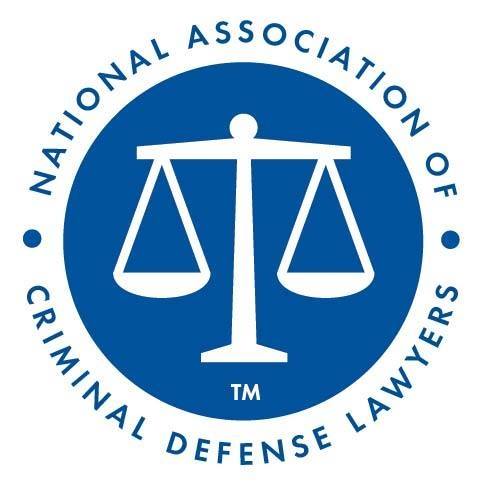Nashville Order of Protection Lawyer
What is an Order of Protection?
An order of protection in Tennessee is a court order intended to protect individuals from domestic abuse, stalking, or harassment. (Sometimes people call it a restraining order; however, a restraining order has another meaning in Tennessee law.)
Generally, an order of protection (“OP”) prohibits contact with the petitioner and requires you to stay away from the petitioner’s home and/or workplace. The OP usually lasts one year. In some cases, it is extended.
Who Can Get an Order of Protection?
In Tennessee, only certain classes of people may obtain an OP. They are:
- Victims of domestic abuse – This includes individuals who have experienced physical harm, threats of harm, or any form of coercion within a domestic relationship. A “domestic relationship” includes family members, spouses and ex-spouses, romantic and/or sexual partners, and anyone you have lived with (including roommates).
- Victims of stalking or harassment – Individuals who have been subjected to repeated unwanted attention, harassment, or threats can also seek an order of protection.
- Victims of sexual assault – Those who have experienced sexual assault may petition for an order of protection.
- Family or household members – In addition to the above, family or household members of the victim may also file on behalf of a child.
What Happens if an Order of Protection is Granted Against You?
If an OP is granted against you, you should expect the following:
- Restrictions on contact – You will be prohibited from contacting the petitioner in any way, directly or indirectly. This includes all methods of communication, including text messages and social media. Indirect contact, such as sending a message through a third party, is also prohibited.
- Stay-away orders – The court may order you to stay away from specified locations, including the petitioner’s home, workplace, and other places.
- You may have to leave your home – If you live with the petitioner, you will likely have to leave your home and find somewhere else to live.
- Firearm restrictions – You cannot possess a firearm while there is an order of protection against you.
- Damage to your reputation – An OP is public record and may be found by those who do a background search on you.
An OP has serious consequences, but a skilled Nashville order of protection lawyer can help you challenge the petition and protect your rights.
Violation of an Order of Protection is a Crime
Having an order of protection against you is not criminal. Violating it is.
A person can be charged with violating an order of protection if they intentionally engage in behavior that the order prohibits. Common violations include:
- Contacting the protected individual in any form, including phone calls, text messages, social media, or third-party communication.
- Coming within a prohibited distance of the protected person’s home, workplace, or other restricted areas.
- Harassing, threatening, or intimidating the protected individual in any way.
- Failing to surrender firearms if the order requires it.
- Any other conduct that breaches the specific terms of the order.
Penalties for violation of an order of protection
A violation is a Class A misdemeanor in Tennessee, which carries a possible penalty of:
- Up to 11 months and 29 days in jail
- Fines of up to $2,500
- Mandatory participation in counseling or intervention programs
- Additional restrictions or modifications to the existing order of protection
- In some cases, repeated violations or aggravated circumstances could lead to felony charges with more severe consequences.
If you commit an assault against the person who has an OP against you, you can be charged with aggravated assault, a felony.
Long-Term Consequences of a Violation Conviction
Beyond criminal penalties, a conviction for violating an order of protection can have lasting effects, including:
- Employment Consequences – Some employers may terminate or refuse to hire individuals with criminal records.
- Firearm Restrictions – Federal and state laws may prohibit firearm possession after a conviction.
- Child Custody Issues – A violation could impact custody or visitation rights in family court.
- Housing and Background Checks – Landlords and property management companies often check criminal histories before approving tenants.
Legal Defenses for Violating an Order of Protection
If you have been charged with violating an order of protection, there are potential defenses that could apply to your case, such as:
- Lack of Intent – If the contact was accidental or unavoidable, such as a chance encounter in a public place.
- False Allegations – If the accusation is fabricated or exaggerated, possibly due to personal disputes or custody battles.
- Insufficient Proof – If there is no clear evidence demonstrating that a violation actually occurred.
- Order Was Not Properly Served – If you were never officially notified or served with the order, you may have a valid defense.
Why You Need a Nashville Order of Protection Lawyer
Being charged with violating an order of protection is a serious matter that can have lasting legal consequences. A criminal defense attorney can help by:
- Examining the specifics of your case to determine if a violation actually occurred.
- Challenging weak or insufficient evidence presented by the prosecution.
- Identifying possible defenses, such as lack of intent, mistaken identity, or false allegations.
- Negotiating for reduced charges or alternative sentencing options.
- Representing you in court to ensure your rights are protected.
Contact a Nashville Order of Protection Lawyer Today
If you are facing an OP petition or have been charged with violating one, the decision to hire an experienced Nashville order of protection lawyer is one of the most important steps you can take to protect your rights and get the best possible defense. Contact Carla Grebert today for a consultation.







